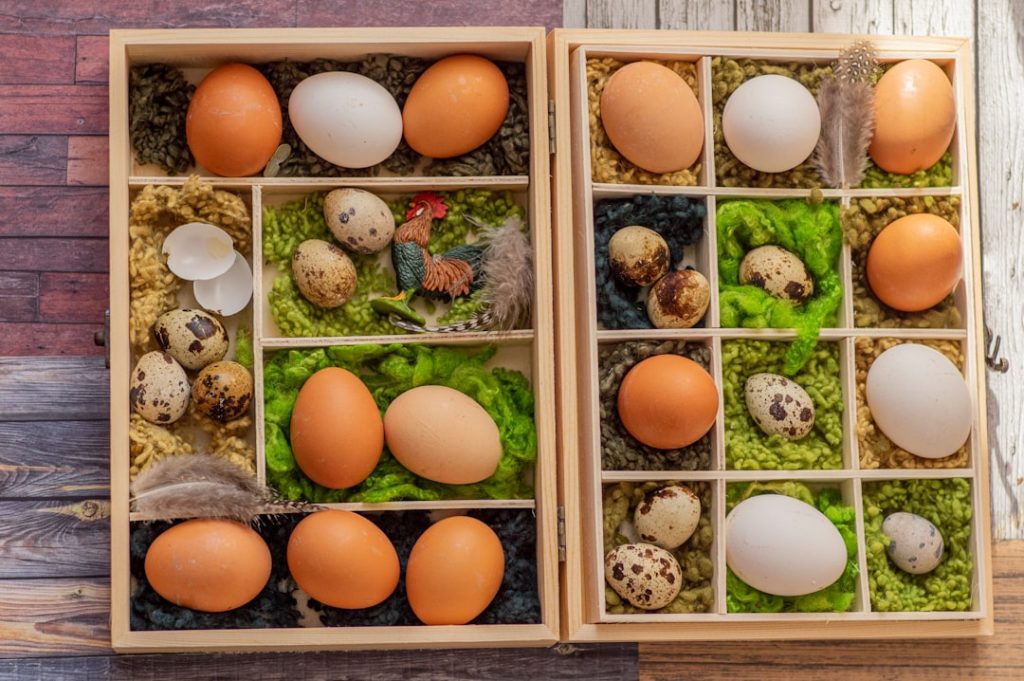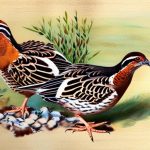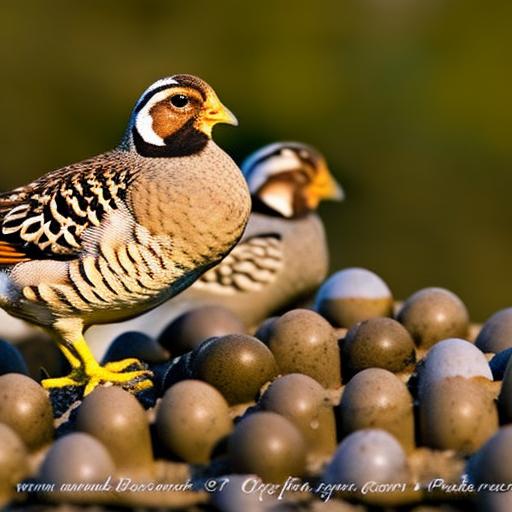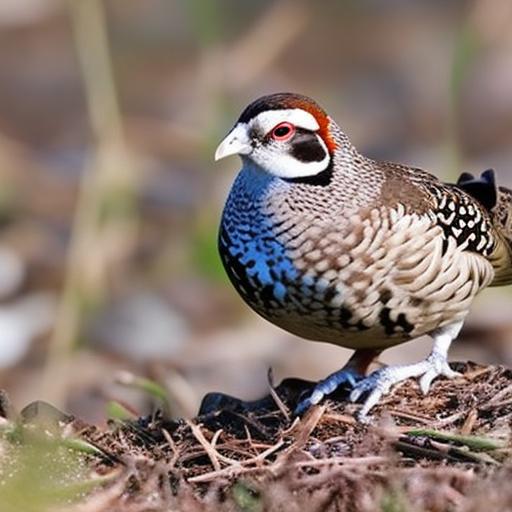Quail breeding is a popular practice among farmers and hobbyists due to the high demand for quail eggs and meat. However, one of the key factors that determine the success of quail breeding is the age at which the birds are bred. The breeding age of quail plays a crucial role in the reproductive success and overall health of the birds. Understanding the ideal breeding age for quail, as well as the factors that affect it, is essential for anyone looking to start a quail breeding operation. In this article, we will explore the various aspects of quail breeding age, including how to determine the ideal age for breeding, signs of maturity in quail, the importance of breeding quail at the right age, and the challenges of breeding quail at the wrong age.
Table of Contents
Key Takeaways
- Quail reach breeding age at around 6-8 weeks old
- The ideal breeding age for quail is around 8-10 weeks old
- Factors affecting quail breeding age include genetics, nutrition, and environment
- Signs of maturity in quail include crowing in males and egg laying in females
- Breeding quail at the right age is important for optimal fertility and productivity
Determining the Ideal Breeding Age for Quail
Determining the ideal breeding age for quail is essential for ensuring the reproductive success and overall health of the birds. Quail typically reach sexual maturity at around 6-8 weeks of age, at which point they are capable of breeding. However, it is important to consider the breed and individual characteristics of the quail when determining the ideal breeding age. Some breeds may reach sexual maturity earlier or later than others, so it is important to research the specific breed of quail you are working with. Additionally, factors such as diet, housing conditions, and overall health can also impact the breeding age of quail. It is important to provide quail with a balanced diet that meets their nutritional needs in order to support healthy growth and development. Furthermore, providing a suitable and stress-free environment for the quail can also contribute to reaching sexual maturity at the appropriate age.
On the other hand, it is important to avoid breeding quail too early, as this can have negative effects on their health and reproductive success. Breeding quail before they have reached sexual maturity can lead to complications such as egg binding, which can be life-threatening for the birds. Therefore, it is crucial to wait until the quail have reached the appropriate age and are showing signs of maturity before allowing them to breed. By carefully monitoring the development of the quail and providing them with optimal care, breeders can determine the ideal breeding age for their birds and ensure a successful breeding program.
Factors Affecting Quail Breeding Age
Several factors can affect the breeding age of quail, including genetics, diet, housing conditions, and overall health. Genetics play a significant role in determining the sexual maturity of quail, as different breeds may reach maturity at different ages. It is important for breeders to be aware of the specific characteristics and traits of the quail breed they are working with in order to determine the ideal breeding age. Additionally, providing quail with a balanced and nutritious diet is essential for supporting healthy growth and development, which can impact their breeding age. A diet that is deficient in essential nutrients can delay sexual maturity in quail, while a diet that meets their nutritional needs can promote healthy development and earlier sexual maturity.
Furthermore, housing conditions and overall health can also affect the breeding age of quail. Quail that are kept in overcrowded or stressful environments may experience delays in reaching sexual maturity, as stress can negatively impact their development. Providing quail with a suitable and stress-free environment that meets their needs is essential for promoting healthy growth and reaching sexual maturity at the appropriate age. Additionally, ensuring that quail are free from diseases and parasites is crucial for supporting their overall health and reproductive success. By addressing these factors and providing optimal care for the quail, breeders can help ensure that their birds reach sexual maturity at the ideal age for breeding.
Signs of Maturity in Quail
Recognizing the signs of maturity in quail is essential for determining the ideal breeding age and ensuring reproductive success. One of the most obvious signs of maturity in quail is the development of secondary sexual characteristics. In male quail, this may include the growth of spurs on their legs and changes in their behavior, such as increased vocalization and aggression towards other males. Female quail may exhibit changes in behavior as well, such as increased vocalization and nesting behavior. Additionally, female quail will begin laying eggs once they have reached sexual maturity, which is a clear indication that they are ready for breeding.
Physical changes in quail can also indicate sexual maturity. As quail reach maturity, their combs and wattles will become larger and more pronounced. Additionally, mature male quail may develop brighter plumage and more vibrant colors as they reach sexual maturity. Observing these physical changes in quail can help breeders determine when their birds are ready for breeding. By carefully monitoring these signs of maturity and providing optimal care for their birds, breeders can ensure that they are breeding quail at the ideal age for reproductive success.
Importance of Breeding Quail at the Right Age
Breeding quail at the right age is crucial for ensuring reproductive success and overall health in the birds. Breeding quail too early can have negative effects on their health and reproductive capabilities. Quail that are bred before reaching sexual maturity may experience complications such as egg binding, which occurs when an egg becomes stuck inside the bird’s reproductive tract. This condition can be life-threatening for the bird and requires immediate veterinary attention. Additionally, breeding immature quail can result in smaller clutch sizes and lower egg production, which can impact the overall productivity of a breeding program.
On the other hand, breeding quail at the right age can lead to higher fertility rates, larger clutch sizes, and increased egg production. By allowing quail to reach sexual maturity before breeding, breeders can help ensure that their birds are healthy and capable of producing viable offspring. This is essential for maintaining a successful and sustainable quail breeding operation. Furthermore, breeding quail at the right age can also contribute to overall welfare and well-being of the birds. By providing them with optimal care and allowing them to reach sexual maturity before breeding, breeders can support healthy growth and development in their quail.
Challenges of Breeding Quail at the Wrong Age
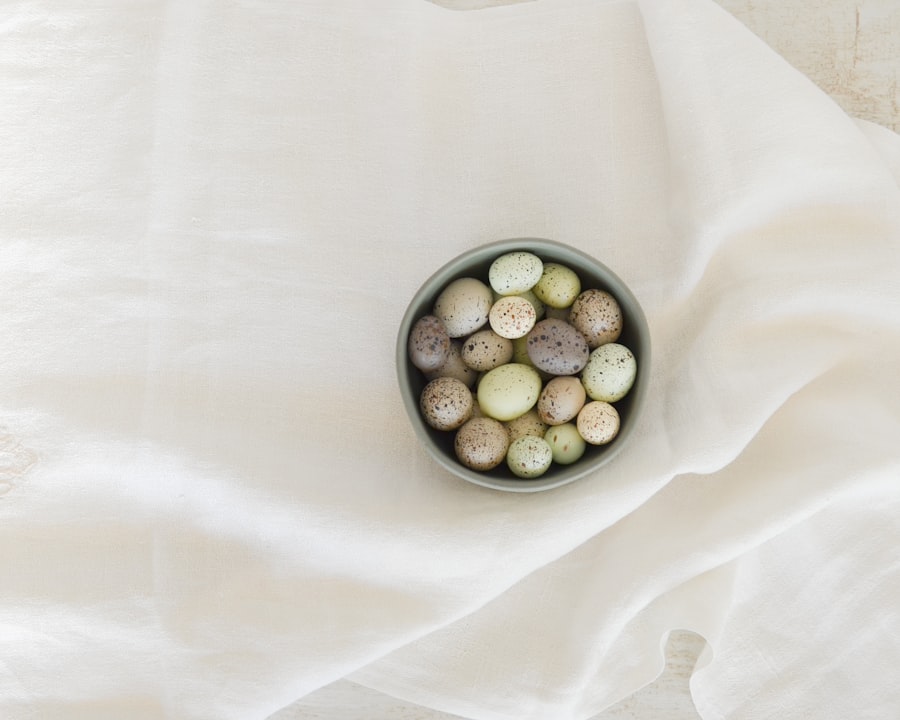
Breeding quail at the wrong age can present several challenges for breeders and have negative effects on the health and productivity of the birds. As mentioned earlier, breeding immature quail can lead to complications such as egg binding, which can be life-threatening for the birds. Additionally, immature quail may produce smaller clutch sizes and lower quality eggs, which can impact the overall productivity of a breeding program. This can result in decreased egg production and lower profitability for breeders.
Furthermore, breeding quail at the wrong age can also have long-term effects on the health and well-being of the birds. Immature quail that are bred too early may experience stunted growth and development, which can impact their overall health and reproductive capabilities later in life. This can result in decreased fertility rates and lower egg production in mature birds. Additionally, breeding immature quail can also lead to increased stress and decreased welfare in the birds, as they may not be physically or emotionally ready for breeding. By understanding the challenges associated with breeding quail at the wrong age, breeders can take steps to ensure that their birds reach sexual maturity before allowing them to breed.
Conclusion and Recommendations for Quail Breeding Age
In conclusion, determining the ideal breeding age for quail is essential for ensuring reproductive success and overall health in the birds. Factors such as genetics, diet, housing conditions, and overall health can impact the breeding age of quail, so it is important for breeders to provide optimal care for their birds in order to promote healthy growth and development. Recognizing signs of maturity in quail is crucial for determining when they are ready for breeding, and breeding them at the right age can lead to higher fertility rates, larger clutch sizes, and increased egg production.
To ensure that quail are bred at the right age, breeders should carefully monitor their development and provide them with a balanced diet that meets their nutritional needs. Additionally, providing a suitable and stress-free environment for the birds is essential for promoting healthy growth and reaching sexual maturity at the appropriate age. By understanding the importance of breeding quail at the right age and addressing the challenges associated with breeding them at the wrong age, breeders can support healthy growth and development in their birds and maintain a successful quail breeding operation.
If you’re considering quail breeding, it’s important to understand the optimal age for breeding these birds. According to a recent article on PoultryWizard.com, “Understanding the Breeding Age of Quail,” it’s crucial to wait until quail reach sexual maturity before attempting to breed them. This article provides valuable insights into the ideal age for quail breeding and offers helpful tips for successful quail reproduction. For more information on creating a suitable environment for your poultry, check out their article on large chicken coop ideas.
FAQs
What is the breeding age for quails?
Quails reach sexual maturity at around 6-8 weeks of age, at which point they are ready to breed.
At what age do quails start laying eggs?
Quails typically start laying eggs at around 8-10 weeks of age, once they have reached sexual maturity.
How long do quails continue to breed?
Quails can continue to breed for several years, with peak egg production occurring in the first year and gradually declining in subsequent years.
What is the best age to start breeding quails?
The best age to start breeding quails is when they reach sexual maturity, which is typically around 6-8 weeks of age.
Are there any risks associated with breeding quails at a young age?
Breeding quails at a young age can lead to increased stress and potential health issues, so it is important to ensure that they are in good condition before allowing them to breed.
Meet Walter, the feathered-friend fanatic of Florida! Nestled in the sunshine state, Walter struts through life with his feathered companions, clucking his way to happiness. With a coop that’s fancier than a five-star hotel, he’s the Don Juan of the chicken world. When he’s not teaching his hens to do the cha-cha, you’ll find him in a heated debate with his prized rooster, Sir Clucks-a-Lot. Walter’s poultry passion is no yolk; he’s the sunny-side-up guy you never knew you needed in your flock of friends!

